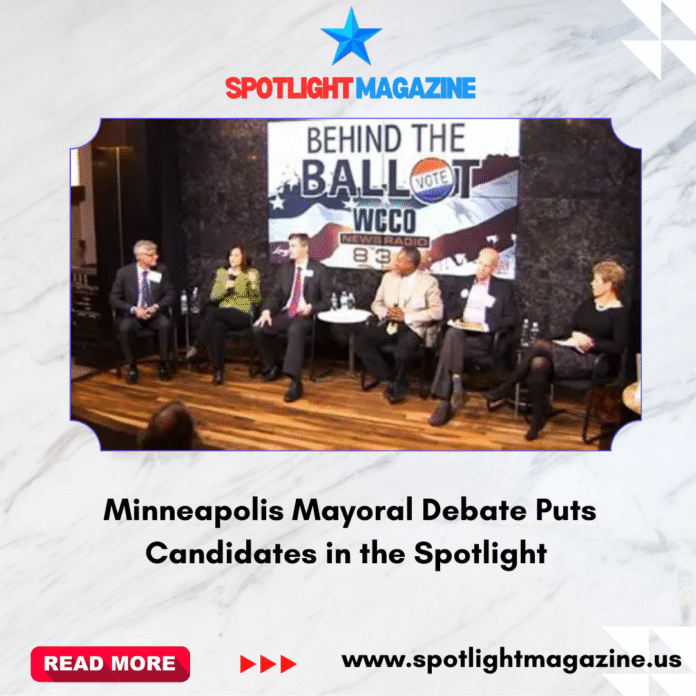Minneapolis residents will have an important chance to hear directly from the people who want to lead their city during a debate scheduled for Friday morning. The event, which will be livestreamed at 8 a.m., brings together five of the 15 candidates running for mayor this year: incumbent Mayor Jacob Frey, State Senator Omar Fateh, Rev. DeWayne Davis, Jazz Hampton, and Brenda Short.
The debate comes at a particularly tense moment in the city’s political season, following weeks of controversy surrounding the Democratic-Farmer-Labor (DFL) Party’s endorsement process. Earlier this summer, Omar Fateh stunned many observers when he won the endorsement of the Minneapolis DFL, giving him an early advantage over Mayor Frey. However, the celebration was short-lived.
Not long after the convention, Frey filed a formal complaint with the state DFL, challenging the integrity of the results. After reviewing the matter, the state party sided with Frey, declaring that nearly 200 votes were unaccounted for during the endorsement process. Officials called the convention “flawed” and ultimately stripped the Minneapolis DFL of the authority to issue an endorsement. The city branch was also placed on probation for two years, a rare and stinging penalty.
For Fateh, the reversal was a serious blow, but he has tried to turn the setback into fuel for his campaign. Speaking after the ruling, he accused party leaders of playing political games behind closed doors, robbing voters of their say in the process. “This is exactly what Minneapolis voters are sick of,” Fateh said. “The insider games, the back room decisions and feeling like our voice doesn’t matter in our own city. Frey used every tactic they could including district and delay on convention day because they didn’t have the votes.”
Mayor Frey, for his part, has taken the opposite view, welcoming the state party’s decision as a sign of accountability. He has argued that correcting mistakes in the endorsement process was necessary, and that the ruling was about fairness, not political maneuvering. “One of the things that really separates us as Democrats is that we recognize when mistakes were made. That’s exactly what happened,” Frey said.
The clash between Frey and Fateh has set the stage for one of the most closely watched mayoral races in years. Frey, who has served as mayor since 2018, is seeking another term at a time when Minneapolis continues to wrestle with housing affordability, public safety concerns, and economic recovery. His leadership during periods of crisis, including the aftermath of George Floyd’s killing in 2020, remains a key point of both praise and criticism among voters.
Fateh, who represents parts of south Minneapolis in the state Senate, has built his campaign on the promise of a fresh start for the city. He has positioned himself as a challenger to the political establishment, seeking to rally support from progressives and those frustrated by the status quo. The debate offers him a major platform to show how he plans to differentiate himself from Frey and the other candidates in the race.
The inclusion of candidates like Rev. DeWayne Davis, Jazz Hampton, and Brenda Short also highlights the wide range of voices in this election. Davis, a faith leader, emphasizes moral leadership and community values. Hampton, a lawyer and tech executive, speaks often about innovation and bridging divides. Short, meanwhile, is a longtime community advocate who has focused on bringing everyday concerns of residents to the forefront of city policy.
With ranked-choice voting set to determine the outcome of the November election, the debate gives voters an early chance to compare candidates side by side. For many residents, this may be the first time they hear from some of the challengers, making the event a crucial moment in shaping public opinion.
As the race moves forward, Minneapolis voters are being asked not only to choose their next mayor but also to weigh in on the kind of leadership they want in a city that has been at the center of national conversations about justice, equity, and change. Friday’s debate will be one of the first big tests in that process, providing a preview of the arguments and ideas that will define the campaign in the weeks to come.


